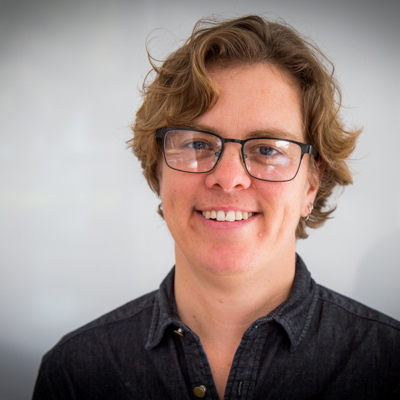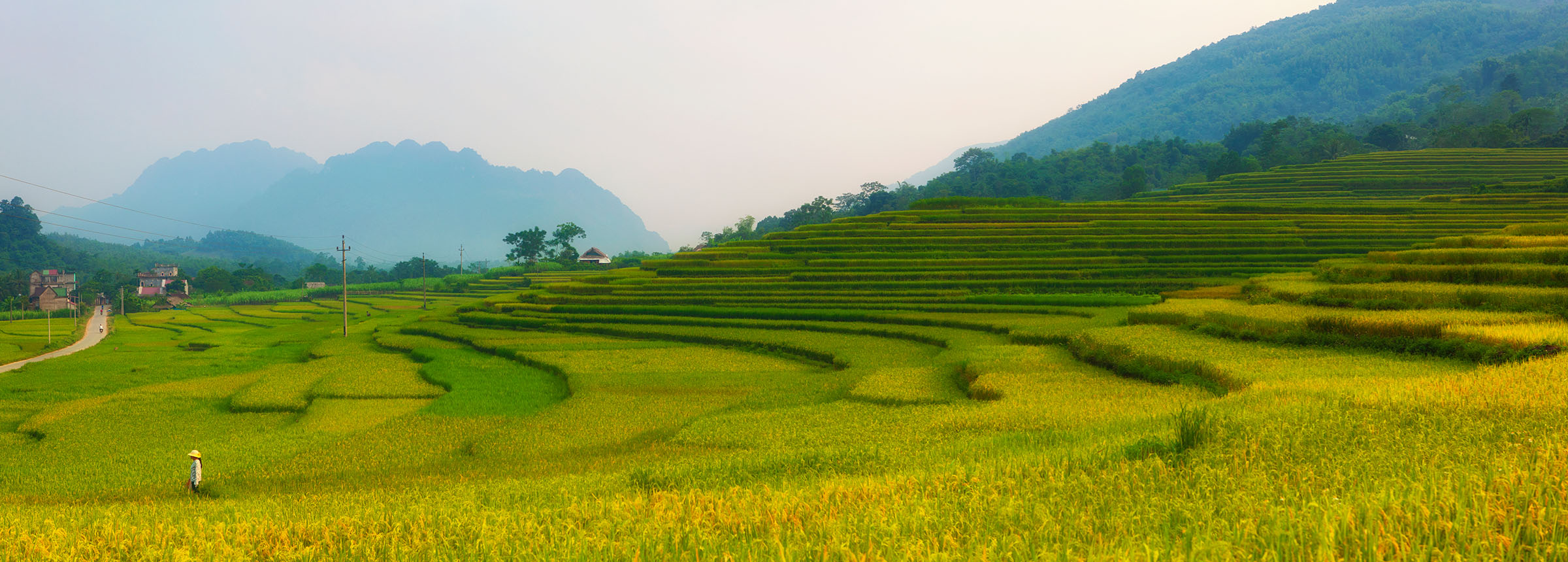
The People of PIER: Katie Goslee
An interview with Katie Goslee, project manager of the Private Investment for Enhanced Resilience (PIER) Project
 What is your role within the PIER project?
What is your role within the PIER project?
My official role with PIER is that I’m the project manager and I steward all the administrative work, such as the project budget and contractual communications with the funder as well as similar communications that happen inside Winrock. In addition, I’m also the team lead for the Ghana country work and the interventions that we are undertaking there. My background is not in resilience but rather climate change mitigation, so this has been somewhat of a new role for me working on the adaptation and resilience aspects of climate change. However, working with in-country partners is not new to me, and working with partners and overseeing their work has been the bulk of my interaction in Ghana.
What excites you about it?
On a personal level, it has been an opportunity for me to be introduced more in-depth to resilience and adaptation work. It is also exciting to see various efforts in different countries focused on the goal of increasing capacity toward resilience, and doing that through the private sector, but with different project or implementation content in each country. Each country has different needs and opportunities, so it is good that PIER can provide a breadth of examples for what this type of work could look like.
What are some of the challenges you’ve come across during the implementation of the project?
As the project manager, some of the challenges are administrative. We are using a lot of MOUs and non-disclosure agreements, so agreeing on what those need to look like with our informal partners causes some delays. These delays are largely a result of this being a new and unique approach and scope of work, and that always involves challenges and some resistance to build support and momentum.
What does progress look like at the end of the PIER project?
Progress looks like many things at the end of the project. One thing that comes to mind is sound examples in place that can demonstrate approaches that work in the PIER countries — and also provide possibilities elsewhere. It’s important to get a mechanism in place, particularly in the four countries we are working in, that is sustainable. For instance, we are working in Ghana to implement financial agroforestry models for more sustainable and resilient cocoa production. Our intent is that this effort does not end when PIER ends, but that it puts in place a mechanism to not only continue in Ghana, but also be altered to fit other countries as well.
Are there any policy changes that you would like to see in the next five to ten years regarding climate resilience?
I think we need to have climate resilience be integral to policy development writ large. It is important to understand that climate resilience is necessary and that is not going to change, so ensuring that any policy developed has an eye toward that. There are always two sides of the coin, so I think policy should also have an eye toward mitigating climate change as well.
How do you think the coronavirus pandemic is going to affect the thinking around climate resilience, especially for the private sector?
In some ways, on a small temporal scale, we might be seeing that we’re more adaptable than we might have thought we were. Around the world, it took some time to change behaviors appropriately in response to COVID, but now it has happened substantially and people are finding new and creative ways to get what they need. On the other hand, this pandemic has helped us to see that we as a global culture, as well as individual countries, are maybe not quite as resilient as we could or should be. This is also true for the private sector and I think this is pointing toward the need for resilience. I don’t think anyone could have predicted the magnitude or the speed with which Coronavirus would overtake us. It became very clear through this that the challenges we’re going to face, both climate and otherwise, cannot be anticipated one hundred percent. We as a global community, along with the private sector, need to understand how to be as resilient as possible to a lot of unknowns.
Do you have any advice for young people who are hoping to get into climate resilience work?
Be confident in yourself and your ability to have an impact as well as your ability to know things and get things done, even if you don’t know things and aren’t getting things done right at this moment. You still have that ability, and having confidence, both as a young person and as a woman at any age is important. It can be tough, especially for those two groups of people. Another thing that is really important is to ask for help and support and to know that that is not a sign of weakness. It is a sign of strength to realize where you need input from others and where you need support.
Also, young people should not think that there is one right area to focus on in addressing climate change. There are so many components that need to be addressed: policy, science, public relations, communications, etc. If a person’s overall interest is climate change, go at it from the angle you are most passionate about because you’ll have the most impact, interest, fun, and be most likely to stick with it and make a difference.
Related Projects

